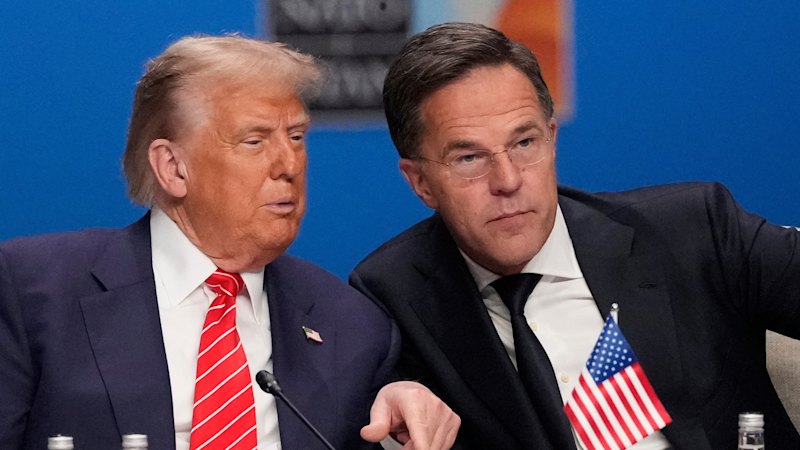
President Donald Trump is scheduled to meet with NATO Secretary-General Mark Rutte this week in Washington. This meeting follows Trump’s announcement regarding plans to sell advanced weaponry to NATO allies, enabling them to supply Ukraine in its ongoing conflict with Russia. The discussions are set for Monday and Tuesday, where Trump will also engage with Secretary of State Marco Rubio, Defence Secretary Pete Hegseth, and members of Congress.
During his arrival in Washington on Sunday night, Trump confirmed the meeting, stating, “I’m gonna have a meeting with the secretary-general who’s coming in tomorrow. But we basically are going to send them various pieces of very sophisticated [weapons] and they’re gonna pay us 100 per cent for them.” This strategic shift indicates a growing commitment from the U.S. to support Ukraine militarily, a stance previously seen as a lesser priority by Trump during his campaign.
Republican Senator Lindsey Graham expressed optimism about the situation, suggesting that the conflict is reaching a turning point. He emphasized Trump’s rising interest in aiding Ukraine, stating on CBS’s Face the Nation, “In the coming days, you’ll see weapons flowing at a record level to help Ukraine defend themselves.” Graham also noted that Russian President Vladimir Putin underestimated Trump’s willingness to act.
The discussions with Rutte come as Ukraine faces intensified air assaults from Russian forces. Last week, Trump hinted at a forthcoming “major statement” concerning Russia, although he refrained from providing specifics on this announcement. “We’re going to see what we will see tomorrow,” he remarked.
Growing bipartisan consensus is evident in Congress regarding the use of approximately $300 billion (equivalent to $456 billion) in Russian assets frozen by G7 countries. Senator Richard Blumenthal asserted, “It’s time to do it,” highlighting the urgency to leverage these resources to support Ukraine.
Rubio mentioned that some U.S.-made weapons sought by Ukraine are currently stationed with NATO allies in Europe, which could expedite their transfer. European nations could then procure replacements from the U.S., facilitating a swift military response.
French Defence Minister Sebastien Lecornu acknowledged the need for enhanced air defense capabilities, stating that France would face delays in sending new ground-air missiles to Ukraine due to current capacity limitations.
Both Republicans and Democrats are urging Trump to endorse Senate legislation aimed at crippling Russia’s oil industry through significant tariffs on goods imported from countries that continue to engage with Russian exports. This proposed legislation includes a staggering 500 percent tariff, which could adversely affect the economies of major players like Brazil, China, and India, all of which are integral to Russia’s energy trade.
Graham criticized these nations, saying, “The big offender here is China, India and Brazil.” He emphasized that the path to ending the war lies in compelling these countries to choose between their economic interests and supporting Putin’s regime.
Trump has previously refrained from enacting new sanctions against Russia’s oil sector but has recently intensified his rhetoric against Putin, describing him as duplicitous. “He talks so beautifully and then he’ll bomb people at night. We don’t like that,” Trump stated, illustrating his dissatisfaction with the ongoing conflict.
The proposed legislation has garnered substantial support in the Senate, but Republican leadership has paused action, awaiting Trump’s approval. While the White House has expressed some reservations about the bill, Trump has insisted on maintaining authority over the waiver process for sanctions and tariffs.
Under the current proposal, the president would have the discretion to terminate penalties under specific conditions while retaining the ability to reimpose them if violations occur. Blumenthal downplayed concerns regarding the waiver provisions, asserting that the legislation would provide Trump with a “sledgehammer” to wield against Putin.
As this diplomatic engagement unfolds, the situation in Ukraine remains precarious, with both military and economic strategies evolving rapidly in response to Russian actions. The upcoming meetings are poised to influence U.S. policy significantly and provide critical assistance to Ukraine in its defense efforts.





